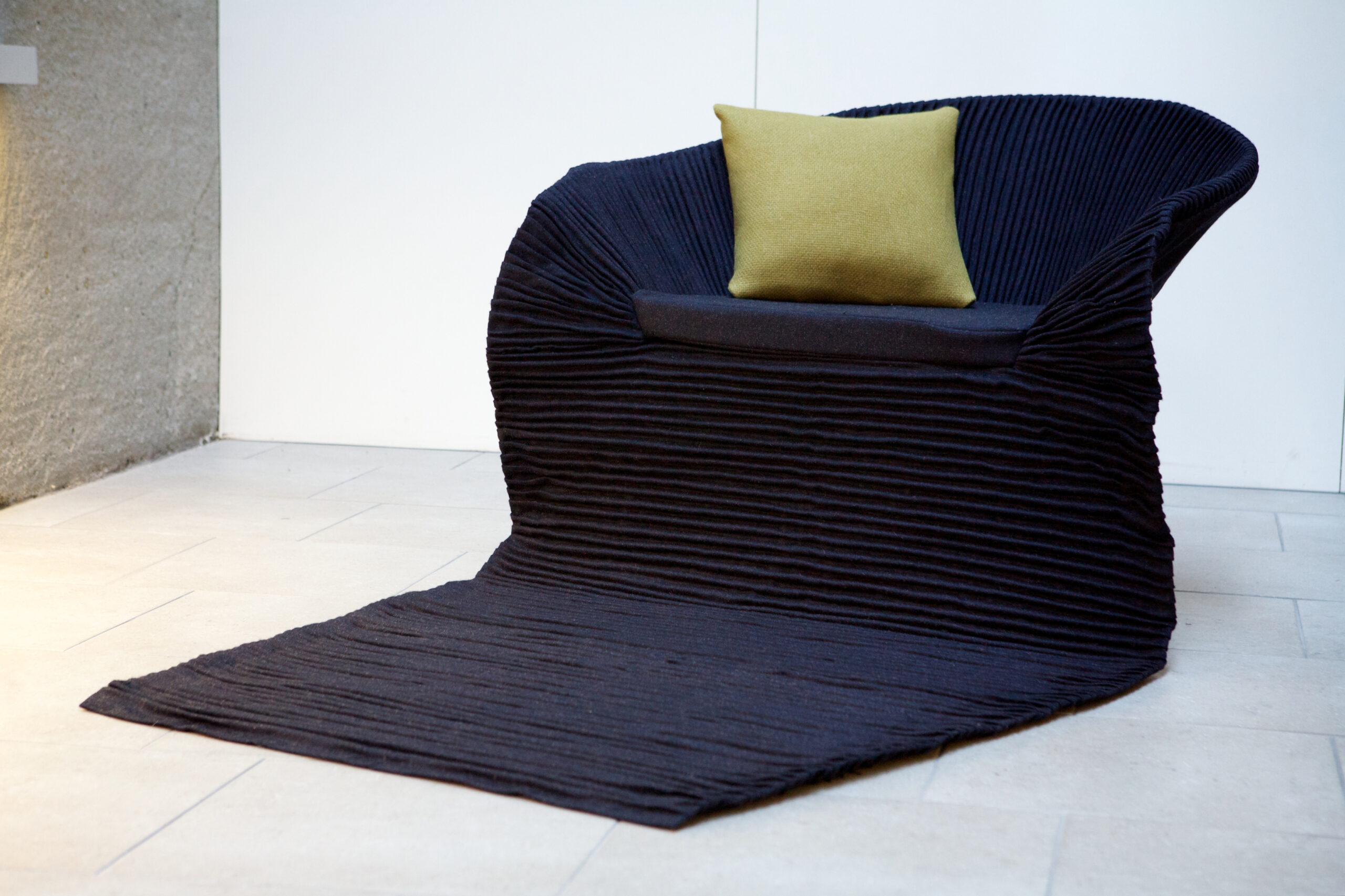If you’re wondering what the future of exporting really looks like – then look no further than The Formary, a Wellington company that is literally transforming waste through excellent design, and earning valuable export revenue in the process.
The company’s first big achievement was to convert Starbucks coffee sacks, of which some 300,000 are produced each year, into high quality upholstery fabric. You’d think that would be a hard act to follow – but recently The Formary came up with another winner in the form of a new fabric made from a blend of waste rice straw and New Zealand wool – and the Chinese love the idea.
But how did this highly innovative business get its first big break?
MD Bernadette Casey says it’s all thanks to a marine biologist; a book he was writing on global warming; a request to her for a chapter on sustainable textiles; and then the sudden realisation about the vast amounts of waste fibre generated by this planet’s food producers every year.
Now the whole focus of Casey and her team at The Formary is to produce ideas to transform industrial and agricultural waste into beautiful fabrics.
There’s definitely a serious side to this business concept. With the world’s population expected to balloon by another two billion in the next 40 years, it’s anticipated that farmers will need to grow around 50 percent more food to meet the demand.
“Our concept of creating fabrics as a bi-product of food crops reduces reliance on crops grown for their fibre alone, freeing up precious arable land for food production,” says Casey. “This increases the value of the crop as well as the productivity of the land.”
The company’s crowning achievement to date, and it is still a very young business, was it’s project for Starbucks, transforming their used coffee sacks into a high performing upholstery fabric for the chairs in the iconic cafés all around the world. The fabric, called Wojo, has earned The Formary a Sustainable Development Award from the Prince Charles Campaign for Wool. Wojo was also named one of the world’s top ten eco-products by Grand Designs’ Kevin McCloud.
“Starbucks was a wonderful first client for us,” says Casey. “Working with them has helped establish The Formary as a highly innovative and competent organisation with global capability.
Successfully delivering on projects with global giants like Starbucks helps opens doors to other multinationals.”
With Starbucks cafes throughout China, I wondered if this is how the latest project involving rice straw fabric came about. But Casey assures me that it was the result of one of her company’s advisors travelling to China and witnessing first-hand the issues around disposal of the waste straw generated from harvesting rice.
“Much of the straw is burnt, which affects air quality and creates commercial disruption. Airports are closed for days on end due to ash and poor visibility.
“We partnered with the Massey University Textile Department to develop a fabric utilising rice straw blended with wool and we’re currently working with a Chinese state-owned rice company developing the manufacturing capability in China.
“The market potential has been extremely positive with approaches from distributors requesting exclusive market rights before we have our first commercial sample off the looms!”
Solution finders
Casey says they’ve endeavoured to attract the very best team possible to The Formary. “Today we have a diverse and hugely talented team based throughout New Zealand and overseas.
“Ideas can come from anyone in our team and from anywhere, but they are always in response to a problem,” she says. “With Starbucks it was a solution to the issue they had of sacks shedding fibres which was preventing their use in the designs of their cafés. In China they had to address a major waste stream.
“Our products have a positive impact on a global scale and we were pretty chuffed to be selected by German film-maker Sarah Grohnert for the Fast Forward documentary series about innovative companies that are reshaping the world through invention. The winning documentary will be premiered at the Sundance Film Festival.”
Of course there have been challenges to overcome in growing the business.
“A costly lesson for us relates to supply partners. It’s vital that you work with supply partners that share similar business ethos and values. The behaviour of our first supply chain partner posed a considerable risk to our company,” recalls Casey.
“The establishment of a new and ethical supply chain was both costly and time consuming and delayed getting our product to market.”
Casey says working with large multinationals presents its own challenges, and describes them as ‘slow moving giants’.
“There are multiple gate keepers and you generally need to engage with several departments within these corporations to ensure project support.”
Despite the challenges, success has come relatively quickly, and Casey is grateful for the support they’ve had from the Wellington City Council’s international team – saying it was vital for the rice straw project. “They facilitated high level meetings with the Chinese Ministry of Agriculture in Beijing. The Council’s economic development team identified the gap when NZTE moved their focus away from SMEs and they have been hugely instrumental and supportive in our engagement with China.”
Glenn Baker is editor of Exporter.




